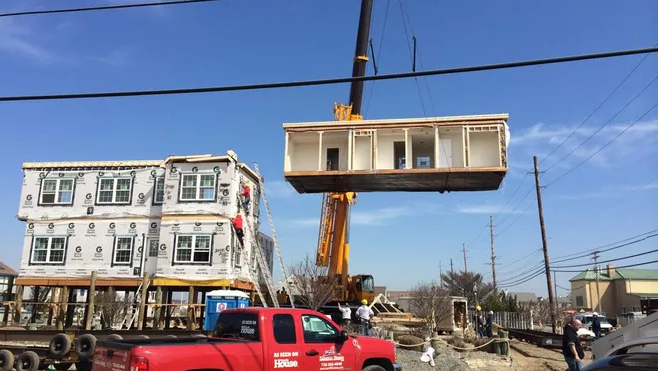NJ DEP's proposed land use rules need significantly more balance by Anthony Zarrilli
 As a proud owner of a home building company that has been in existence for more than 50 years, and as a lifelong Jersey Shore resident, I can appreciate the need for the state Department of Environmental Protection to reevaluate land use standards during changing times.
As a proud owner of a home building company that has been in existence for more than 50 years, and as a lifelong Jersey Shore resident, I can appreciate the need for the state Department of Environmental Protection to reevaluate land use standards during changing times.
But unfortunately, the standards the DEP is proposing as part of its Resilient Environments and Landscapes, or REAL, rules are so extreme and stringent that companies like mine, other industry-related businesses and a greatly increased number of residents in any shore, river or bay community will face game-changing financial headwinds.
These proposed rules establish an “inundation risk zone” for any new, expanded or improved development based on an improbable 5 feet of sea level rise between now and the end of this century.
While I can’t claim to be a sea level rise scientist, I do know that the number is much higher than what is forecast by the climate experts anywhere else. Even the 2019 Rutgers report on which the DEP is basing this rule says it’s unlikely we’ll have anything close to 5 feet of sea level rise in 75 years.
Yet the DEP wants builders and homeowners to comply right now with an extreme standard that is unlikely ever to occur.
The result of this standard will make it extremely challenging to build in an area that is in an IRZ — and these include areas that have never flooded.
In addition to building 5 feet above current flood standards, builders like me would have to produce a burdensome alternative development analysis to show where else on a property we could build — or show why we couldn’t build somewhere else. This would be nonsensical considering that our customers know the locations they want to build and aren’t looking for an alternative site for their home.
More impactfully and impractically, a home built in an IRZ will be allowed only 3% of impervious cover on the property which is all but impossible.
I know the DEP says it's not establishing “no build zones” as part of the rule. But that kind of standard really can’t be met. Consider that a small home with 1,000 square feet of area on a 10,000-foot lot would already account for 10% impervious cover on a property — and that’s without including a deck, patio or driveway or even a sidewalk.
In short, without actually stating “no build zones,” that’s exactly what these rules are creating in an expanded area.
The proposed REAL rule also says any new home built in an IRZ that needs a DEP permit — as many do — would require the later sale of that home to include a deed that says the structure will someday be underwater.
That’s a major deterrent for any builder, homebuyer or seller and, in effect, would greatly reduce someone’s property value. On top of that, it’s the government again stretching its long arm of bureaucracy and misguided authority over the public.
As I’ve been learning about this rule over the past few months, it’s difficult to understand why the DEP is resorting to such extreme measures in the reevaluation of its land use rules.
Why can’t the department adjust for an increased sea level rise of 1 to 2 feet, without the ancillary restrictions that will hurt residents and businesses, and then update them if needed? And why does it insist on basing these rules on projections that climate experts and the dated Rutgers report say are unlikely to happen?
The comment period for these land use rules ended on Nov. 3, and the DEP can finalize them, no matter how many mayors — especially those in river areas with the need for affordable housing — have already stressed their concerns.
We really need the DEP to go back to the drawing board and bring some much-needed balance and practicality to these extreme rules, or the Legislature needs to get involved and stop the department from having a great impact on our way of life in the future.
In this case, it is not making the best decisions that fit the public needs based on the best practical and accurate information. Extreme decision making is never a best answer. Our taxpaying residents and businesses deserve much better.
Anthony Zarrilli is the owner and CEO of Zarrilli Homes in Brick.
Special to the USA TODAY Network on APP.com
